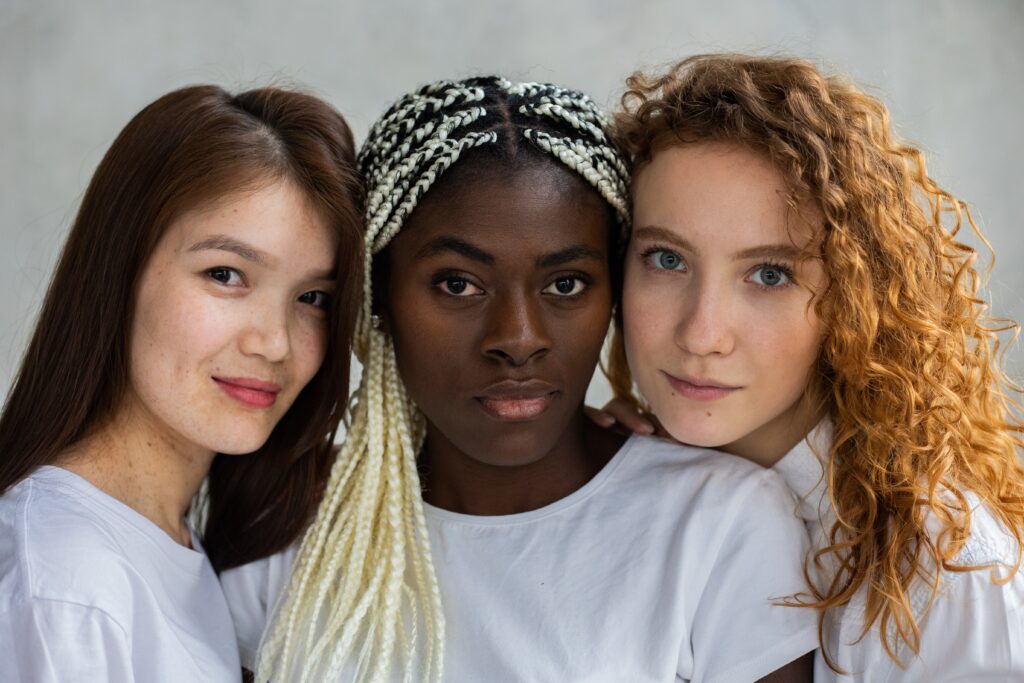
As the world becomes more connected, it is important to recognize that empathy can be a key tool in creating a more inclusive world. Empathy is an important aspect in creating a more inclusive world. Empathy is the ability to understand and share the feelings of another person. By having empathy for someone, you are able to put yourself in their shoes and understand what they may be going through.
Empathy occurs when you understand another person’s feelings and share those feelings with them. For example, if someone tells you that they’re scared of spiders, you can feel afraid of spiders too. This is called emotional empathy (sometimes called affective empathy). But there’s also cognitive empathy—where you understand why someone feels scared of spiders without feeling afraid yourself (this might be hard to imagine!). So if someone tells you that they’re scared of spiders because their brother was bitten by one when he was young and almost died from infection, your response might be: “Wow!”
It helps individuals understand and connect with others on a deeper level
Empathy is the ability to understand and share the feelings of another person. It helps us connect with others on a deeper level, making us more compassionate people. It also helps us accept differences in others so that we can better understand each other. If we can be more accepting of other people’s beliefs, we will be able to live together peacefully as humans on this planet.
We are all different, but that doesn’t mean we can’t get along. We all have different backgrounds, beliefs, cultures and religions but we can still live together in harmony if we try our best to understand each other’s differences instead of judging them as wrong or right just because they are different from your own beliefs.
It really helps one recognize and respect other’s perspectives
When people can understand and share the feelings of others, they are more likely to recognize and respect their perspectives. This is how showing empathy can really help the world become more inclusive. If you have ever felt excluded, you know what it feels like to have someone else’s perspective ignored or discounted. The best way to combat this problem is for everyone to learn how to listen and show empathy for others. We need a world where people can express their feelings without fear of being misunderstood or judged by others.

When we interact with people from different backgrounds and cultures, we must try our best to understand where they come from before making judgments about them based on stereotypes that do not take into account individual circumstances that may affect how they feel about certain things (for example: education level, socio-economic status).
Empathy can also foster a sense of belonging
Empathy can help us understand other people and their experiences, which is something that’s especially important in today’s world. We live in a time when it’s easier than ever to feel isolated and alone—to feel like you don’t belong. But empathy can change all that, by helping us understand each other better. Empathy will help you feel more accepted and understood by your peers, which will allow you to find the strength to accept yourself. It can also foster a sense of belonging and acceptance, which are key components of an inclusive society.
Empathy helps us to put ourselves in someone else’s shoes
Empathy is the ability to understand and feel what another person is experiencing. It helps us to put ourselves in someone else’s shoes, which can lead to a reduction in prejudice, discrimination, and conflict. For example, if you see someone who is homeless, it’s easy to feel empathy for them. You might imagine how it would feel if you were living on the streets without a home or a warm place to sleep. It may be hard for you to imagine yourself in that situation because it doesn’t fit with your own experience. But being able to put yourself into their shoes for a moment helps you see that they’re not so different from you after all!
Empathy also helps us understand other people’s ideas and viewpoints more clearly by allowing us to see things from their perspective instead of our own. If we’re arguing with someone about something important but don’t try to see things from their point of view, we’ll have trouble coming up with solutions that make sense for both sides of the argument—and thus we won’t be able to reach an agreement!
Empathy also encourages individuals to take action towards promoting social justice and equality
Since empathy is the way we learn about people’s experiences, emotions, and perspectives. So when we empathize with someone, we’re able to understand what they’re going through, even if it’s something that doesn’t relate to us—and because of this understanding, we are more likely to respond appropriately when interacting with them.
When we empathize with someone, it can lead us to feel compassionate towards them. This compassion can motivate us to do things that help others or promote social justice and equality—like volunteering at a homeless shelter or donating money to charity organizations working for change within communities around the world.
There are certain ways you can show empathy towards someone or something that may lead to creating a more inclusive world:
- Put yourself in others’ shoes: Try to imagine how someone else might feel and see things from their perspective.
- Listen actively: Pay attention to what others are saying and avoid interrupting. Try to understand their thoughts, feelings, and experiences.
- Avoid judgment: Refrain from making assumptions or passing judgment on someone else’s thoughts, feelings, or experiences.
- Show genuine interest: Ask questions and engage in conversations with people who have different backgrounds and experiences than you.
- Educate yourself: Learn about different cultures, communities, and perspectives to gain a deeper understanding of the world.
- Take action: Use your empathetic skills to advocate for marginalized communities and work towards creating a more inclusive world.
- Reflect on your own biases: Examine your own beliefs and biases to ensure they’re not hindering your ability to be empathetic towards others.

To sum it all up we can say that empathy is the ability to understand and share the feelings of others. It’s easy to think that empathy only applies to people we love or those who are similar to us, but empathy can also be applied to strangers, animals, and even inanimate objects. By fostering empathy in ourselves and others, we can build a world where everyone is valued, respected, and treated with dignity, regardless of their differences. Empathy helps one build stronger relationships with another and create a more inclusive world.
RUCHI RATHOR Founder & CEO
Payomatix Technologies Pvt. Ltd.
FOUNDER AND INVESTOR | PAYMENTS PROCESSING EXPERT | MERCHANT ACCOUNT SOLUTIONS | WHITE LABELLED PAYMENT GATEWAY | Dreamer, Creator, Achiever, Constantly Evolving
Website Ruchi Rathor: https://ruchirathor.com
Website Healing Heart https://thehealingheart.me/
Instagram https://www.instagram.com/_ruchirathor_/
LinkedIn https://www.linkedin.com/in/ruchirathor12/
Facebook https://www.facebook.com/ruchi.rathor.magnificient
Tumblr https://www.tumblr.com/blog/ruchirathor-thehealingheart
Medium https://medium.com/@ruchirathor_23436
Twitter https://twitter.com/ruchi_rathor









